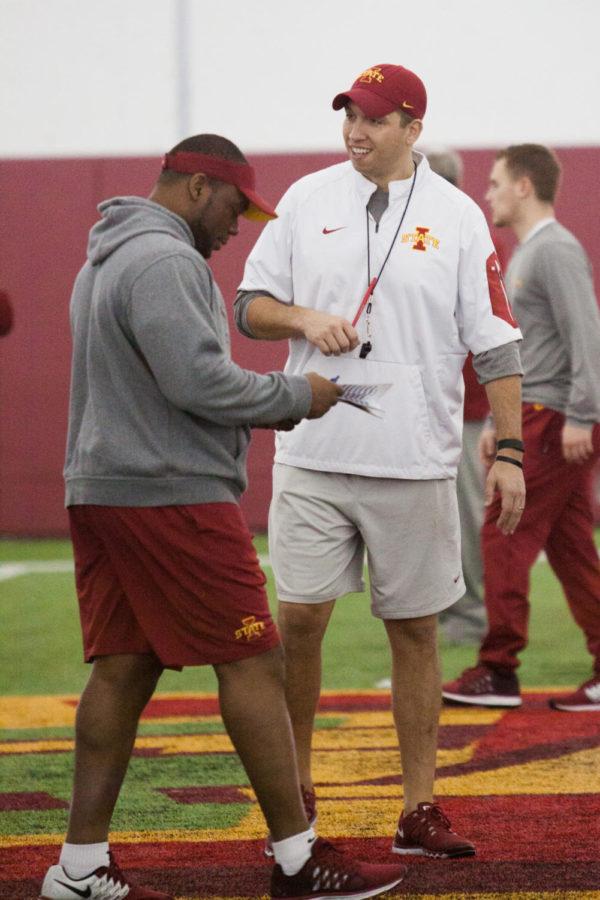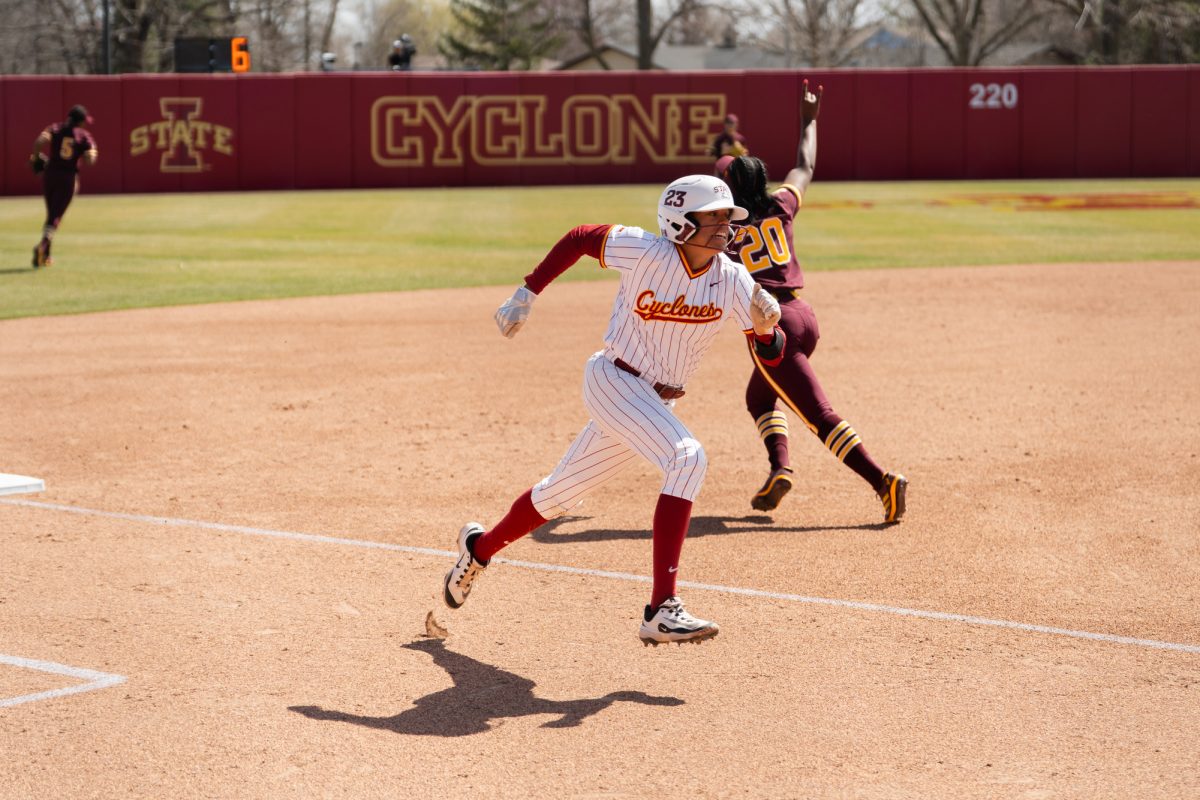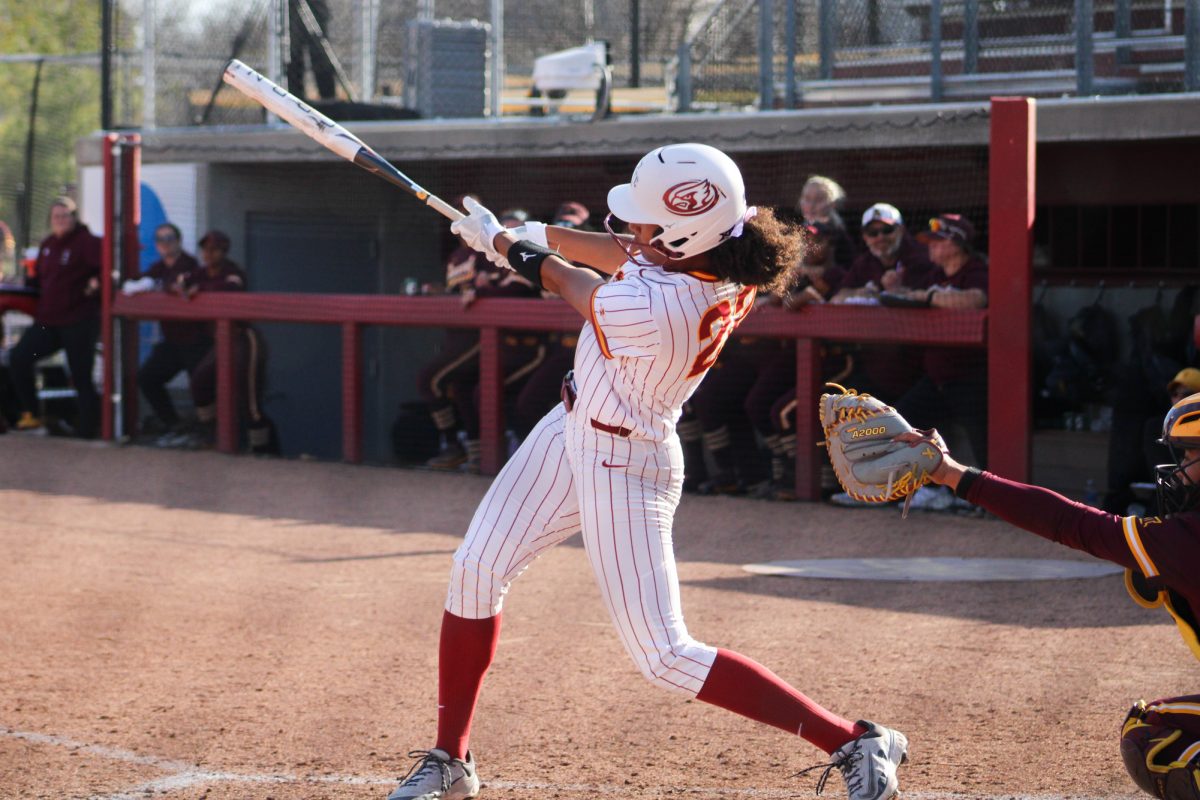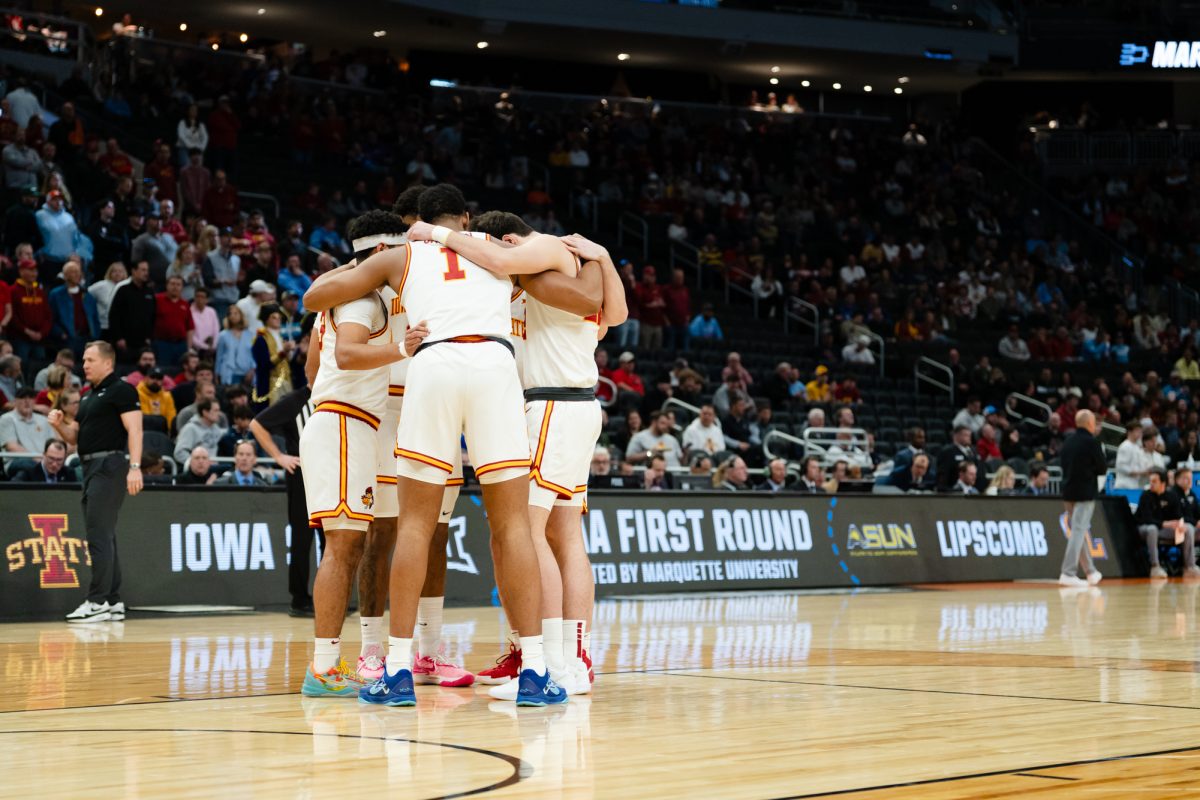Pair of ISU coaches unhappy with satellite camp ban
April 9, 2016
Iowa State wasn’t known as a recruiting powerhouse under former coach Paul Rhoads, which is part of the reason why it has struggled on the field in the past three seasons.
ISU coach Matt Campbell planned to change that when he came in November from Toledo, raising Iowa State’s 2016 signing class 40 spots on Scout.com’s rankings in a matter of two months.
But a tool in Campbell and his staff’s toolkit was taken away Friday.
The NCAA banned satellite camps across college football Friday after a vote among its conferences. The Big 12, with four Texas schools, was one of four Power Five conferences to vote against it. The other three were the SEC, ACC and Pac-12, according to ESPN.
“From my end of it, I’m furious,” Campbell said. “I think it’s a situation that is really unfair. I think it’s a situation that doesn’t make any sense.”
Satellite camps are when coaches host camps at other schools for area high school players. For example, Campbell said he hosted camps at Ohio State and Michigan when he coached at Toledo last season. He also said he “made a living off them,” referring to recruiting.
He was taking that idea to Iowa State, as he was set to host a satellite camp in Texas this summer with Michigan head coach Jim Harbaugh.
“To take Division I schools that are willing to pay their own money to go down and… provide a camp and provide an opportunity to give these young men an opportunity to be evaluated,” Campbell said, “I don’t know if I see it in the right way.”
Satellite camps rose to the national forefront rapidly in the past 10 seasons. When Harbaugh was hired at Michigan, he fixated on those types of camps, which brought controversy in the mix.
Schools in the SEC and ACC, who have the advantage of being in recruiting hotbeds, were vehemently opposed to satellite camps. Alabama head coach Nick Saban repeatedly spoke out against them.
The camps benefited schools in the Big 10 and others in the northern part of the United States, where recruiting grounds aren’t so fertile.
But the main concern for the ISU coaching staff isn’t the effect the ban will have on its program. The coaches are more concerned with the effect it will have on young football players looking for better opportunities.
“If I was a parent… and I can save some money by you coming to my area to let my kid go to camp, I would surely appreciate that,” said defensive coordinator Jon Heacock. “Do I think that it hurts our team? I don’t know. I just know if I was parent, I would appreciate if schools were coming close to me.”
Campbell feels the same way. He feels the ban shows that the NCAA isn’t following its guidelines in creating a “fair and equal balance” across Division I schools and protecting student athletes.
“The reality of it is, you’re hurting kids,” Campbell said. “Now you handcuff these kids and opportunities that maybe some of these young guys could’ve had. Those schools already have the advantage. Their location, where they’re at, they can recruit those kids and those kids can come every day.”
Campbell said satellite camps help kids who don’t have the money or the means to travel to universities across the country to get to camps around their area. It also helps kids get in front of more evaluators, giving them more opportunities to improve their game.
In order to benefit young football players, Campbell wants the NCAA to reconsider its decision.
“I certainly hope that the NCAA sits there and looks at it and says, ‘Was this really the right thing for young kids… to get evaluated and put them in the right situation?” Campbell said. “I’m really against it and I think it’s a really unfortunate situation right now.”







